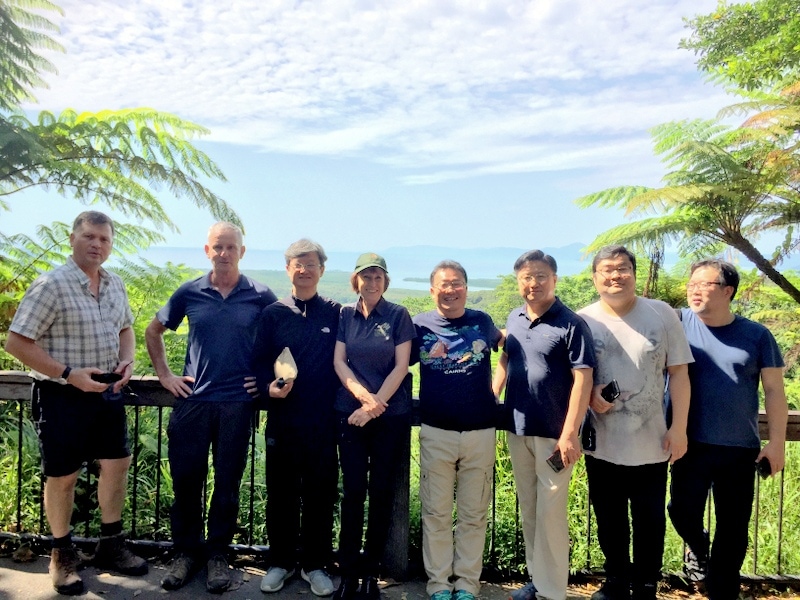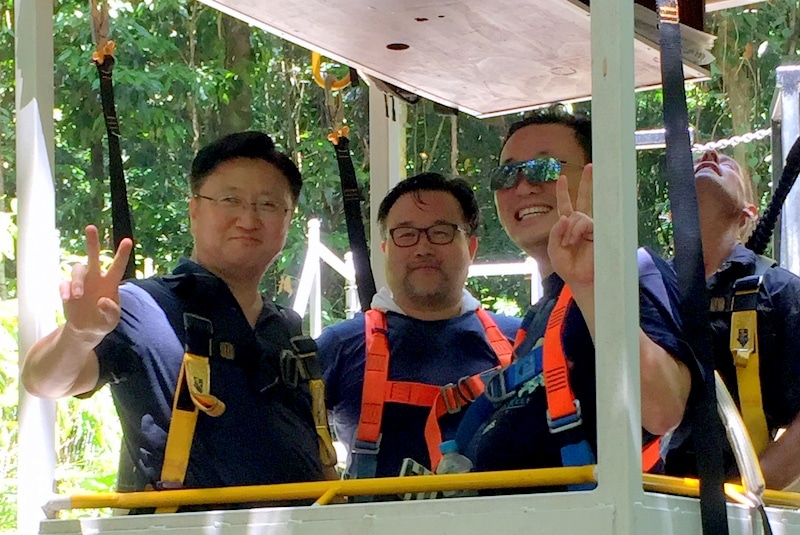A Memorandum of Understanding (MoU) for academic and research co-operation between South Korea’s National Institute of Ecology (NIE) and TERN at the University of Queensland (UQ) was signed in February 2019.
The MoU recognises the mutual benefits of long-term co-operation and the importance of academic and research cooperation in the fields of ecological database and information. It highlights areas where the two programs can work together including high-level science questions or criteria; in-situ measurements and sampling protocols; data products; informatics; science and education; and project management.
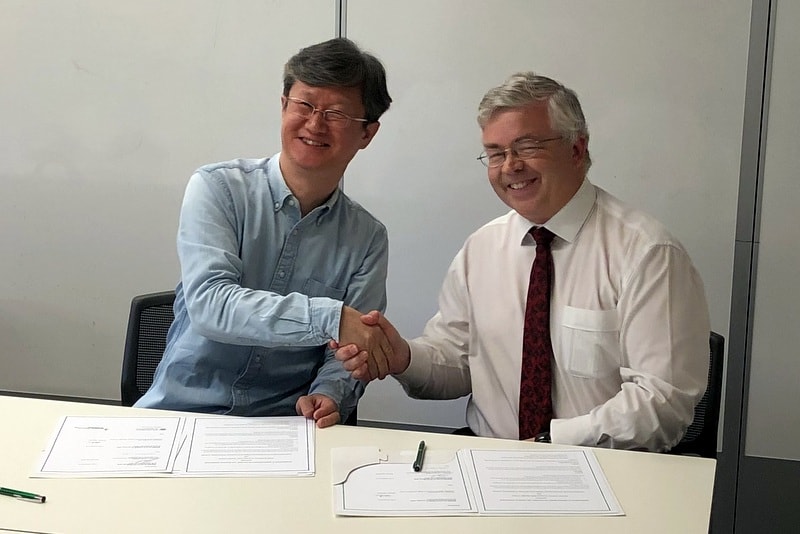
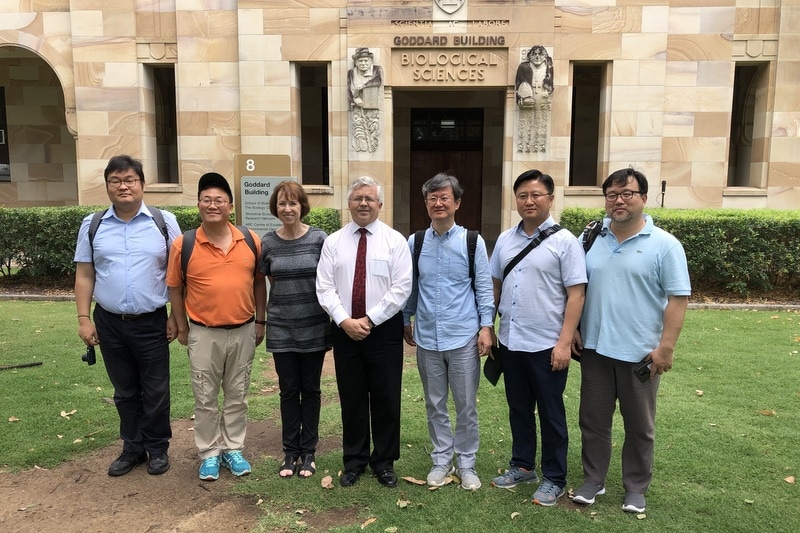
In addition to the MoU signing, the visiting Korean delegation, led by Professor Ohseok Kwon, Kyungpook National University (KNE) and Chair of the Korean Long Term Ecological Research network (KLTER), participated in a five-day program organised by TERN.
The purpose of their visit was to view Queensland ecology field sites that may host students of the International Ecology School (IES) for student exchanges. The IES concept aligns with the Short-term Global Experience for UQ students and is expected to commence in late 2019.
IES is a Korean initiative to be funded by a donation from a Korean business specifically to provide education and international field experience to undergraduate students in the International Long Term Ecological Research network’s East Asia Pacific regional chapter (ILTER-EAP), which includes Australia.
IES sites visited on this trip included QUT’s Samford Ecological Research Facility (TERN was launched here in 2010), the TERN Daintree Rainforest Landscape Observatory operated by JCU, and UQ’s Moreton Bay Research Station on North Stradbroke Island.
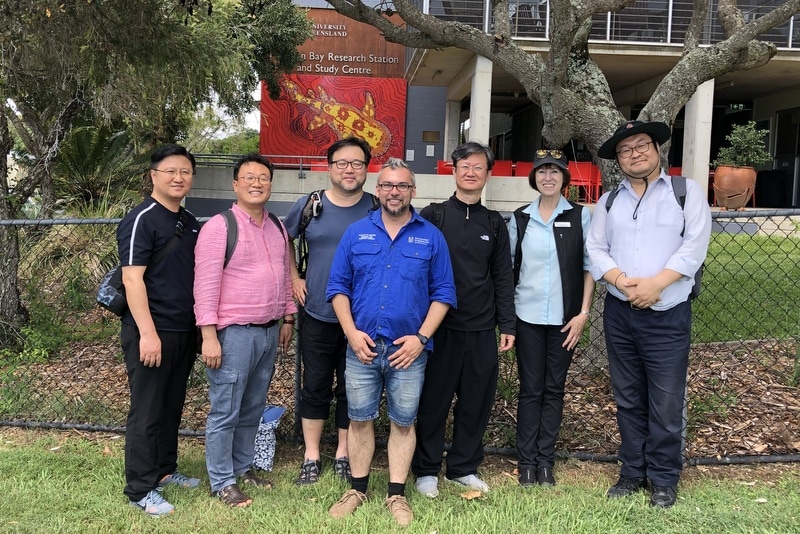
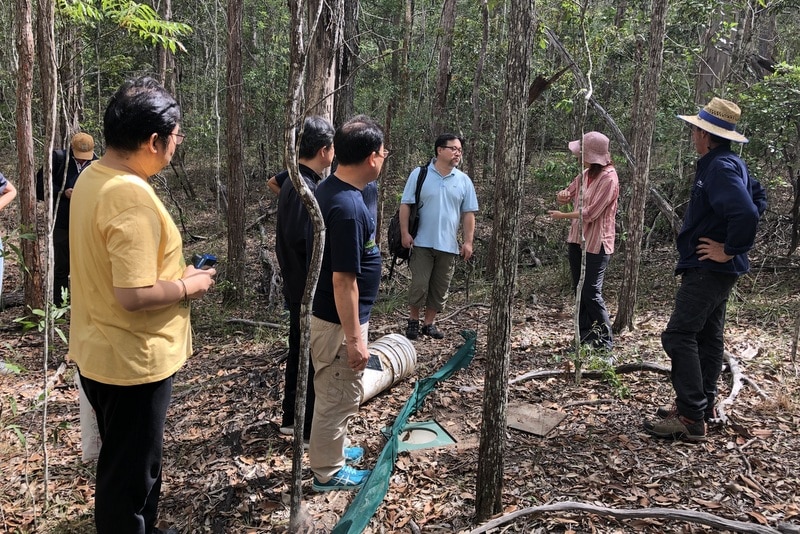
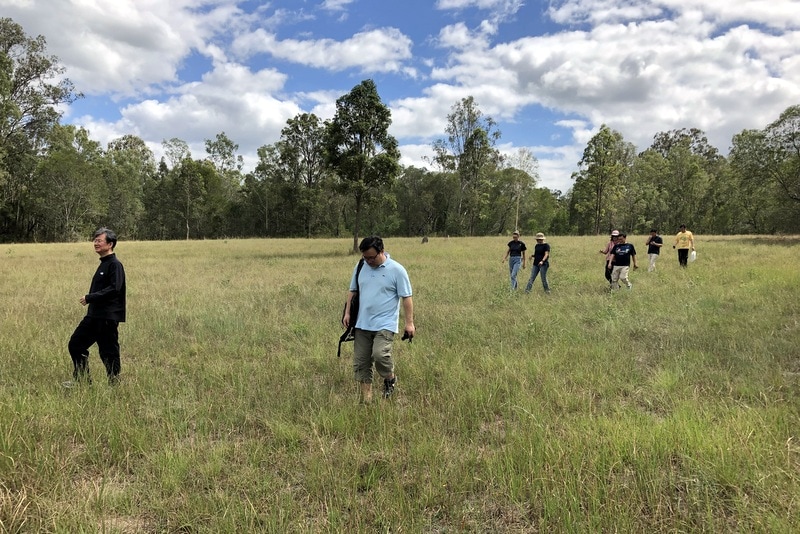
- TERN has well established international partnerships that facilitate joint research, shared infrastructure and access to data, in the Asia-Pacific region (including Indonesia, Vietnam, Japan, China and Taiwan), North America, Europe, and South Africa. These international collaborations not only share knowledge, expertise and experience but also allow us to present Australian infrastructure to the world and advance Australia’s research standing globally.
- Anyone interested in collaborating further with TERN can contact tern@uq.edu.au
